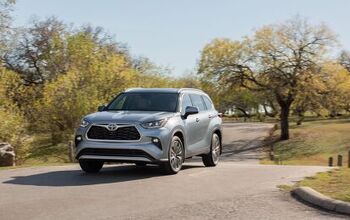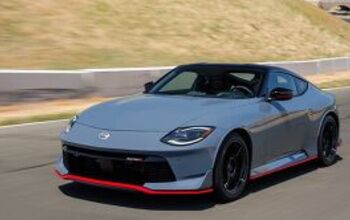Prepare Yourself for Another Huge Electric Vehicle IPO

Chinese electric vehicle manufacturer Xpeng announced Thursday a decision to increase the size of its U.S initial public offering (IPO) by more than a third after realizing Wall Street can swallow anything so long as it promises a greener tomorrow.
Co-founded in 2014 by two former executives from China’s GAC Group, the EV startup has already managed to produce around 20,000 vehicles for the Asian market. It also became engaged in an intellectual property dispute with Tesla (which claimed Xpeng stole its Autopilot source code) in 2019 and ran afoul with California’s Department of Motor Vehicles after failing to submit disengagement reports on its self-driving test vehicles in 2018.
Such hurdles don’t seem to have slowed the company’s rise to prominence, however. Xpeng is adept at fundraising, amassing well over a billion dollars through strategic partnerships in just the last two years. Meanwhile, the adjusted IPO filed on the New York Stock Exchange this August now targets a cool $1.5 billion USD.
It makes sense in the broader context. EV manufacturers frequently garner valuations that overshadow established automakers that are many times larger — and substantially more profitable. Xpeng itself only has two facilities located in China that produce its G3 sport-utility vehicle and brand-new P7 sedan. While we’ve never driven one (as it’s not sold in North America), the G3 has been praised for its build quality and impressive tech inclusions. Autocar even said it offered “near-Tesla levels of autonomous driving capability” in 2019.
There’s substantially less information floating around about the P7, but it’s clearly targeting the Tesla Model 3 and looks a lot like many other electric sedans we’ve seen debut in the last year or two. Porsche also helped develop the chassis, giving it some extra credibility as a performance model.
According to Reuters, Xpeng’s filing states that it will price its shares at $15 each. It originally suggested they’d go for between $11 to $13 when the deal was launched, however.
From Reuters:
The Guangzhou-based automaker had planned to sell 85 million American Depository Shares (ADS) but increased that to about 99.7 million shares following higher-than-expected demand from investors, according to the filing. Investors now value Xpeng at over $11 billion and its shares will start trading in New York on Thursday.
There is also a so-called greenshoe option in which another 14.96 million shares can be issued within the next 30 days that would allow Xpeng to raise a further $224.4 million.
BofA Securities, Credit Suisse, and J.P. Morgan. are joint bookrunners for the offering.
Xpeng CEO He Xiaopeng said the additional funding will be funneled into research and development and expanding sales. Vehicles (both future and present-day) are targeted between 150,000 yuan ($21,804) to 300,000 yuan to appeal to the market. Currently, that only includes China, though the business aspires to tackle both Europe and the United States.
[Image: helloabc/Shutterstock]

A staunch consumer advocate tracking industry trends and regulation. Before joining TTAC, Matt spent a decade working for marketing and research firms based in NYC. Clients included several of the world’s largest automakers, global tire brands, and aftermarket part suppliers. Dissatisfied with the corporate world and resentful of having to wear suits everyday, he pivoted to writing about cars. Since then, that man has become an ardent supporter of the right-to-repair movement, been interviewed on the auto industry by national radio broadcasts, driven more rental cars than anyone ever should, participated in amateur rallying events, and received the requisite minimum training as sanctioned by the SCCA. Handy with a wrench, Matt grew up surrounded by Detroit auto workers and managed to get a pizza delivery job before he was legally eligible. He later found himself driving box trucks through Manhattan, guaranteeing future sympathy for actual truckers. He continues to conduct research pertaining to the automotive sector as an independent contractor and has since moved back to his native Michigan, closer to where the cars are born. A contrarian, Matt claims to prefer understeer — stating that front and all-wheel drive vehicles cater best to his driving style.
More by Matt Posky
Latest Car Reviews
Read moreLatest Product Reviews
Read moreRecent Comments
- Redapple2 The VW saga is well remembered. Ug. RE your Lexus, with such a long refuel interval I d burn only E 0. Some of your E 10 in the tank may be from 6 mo ago.
- 28-Cars-Later The CD player is glorious. Edit: Also really nice job on the initial shot. I'm not sure if you had any training in photography but it looks professional.
- Carson D I was thinking that this is such a nice car, and it is a bit of a shame that you use it so little. Then I remembered that I still have a car that I purchased new in 2007 which now has 78,000 miles and is sitting in a parking space I moved it to so my parents could park in its space when they visited about a month ago. That your 2019 Golf Sportwagen had headliner and water intrusion issues is a stark reminder that people who still buy VWs are like those people who still vote for bail reform politicians after they've been assaulted by someone who'd already been arrested for violent acts half a dozen times in two months. I knew two people who bought new Jetta Sportwagens who suffered spooling mesh headliners that became jammed, unfurled and frayed combined with leaking two-plane sunroofs...in 2009! They were also involved in a class action lawsuit about 'mandatory optional' equipment that they paid for that the cars weren't actually equipped with. I think it was Bluetooth links.
- Bd2 Engine problems have been fully remedied, please have no further concerns. All customers are satisfied, check Google and Reddit for further information. Salutations and please have a nice day.
- Wjtinfwb Keep it. A good car you're not tired of is like a great dog. Irreplaceable. After 45 years of car ownership, there's just a few I wish I never sold and realized my total proceeds from selling those few cars was less than 75k dollars. Not a lot of Lexus that you'd say are irreplaceable, but a solid GS is one of them.


































Comments
Join the conversation
Not sure why anyone would *want* Tesla's Autopilot code.
In the age of hyper inflation, anything is worth that much money.